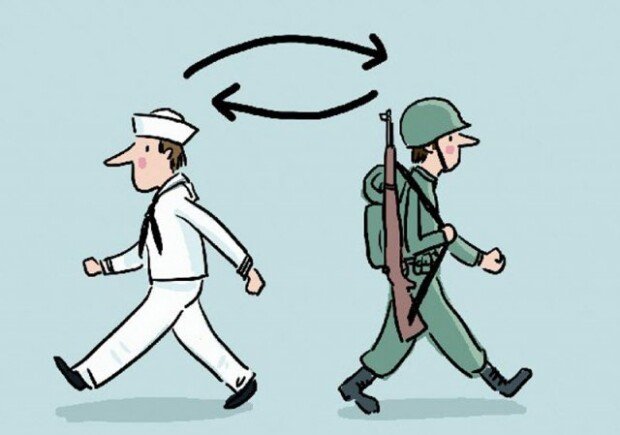Switching roles
Switching roles
Posted January. 31, 2023 07:48,
Updated January. 31, 2023 07:48

The Korean War was becoming a nightmare when the Communist Chinese troops intervened and the Allied Forces retreated to the south of the 38th parallel. Unfortunately, that was when Lt. Gen. Walton H. Walker, the commander of the 8th U.S. Army, was killed in a traffic accident. He was replaced by Matthew B. Ridgway, who led the 82nd Airborne Division into Normandy on D-Day during World War II, and later guided the 18th Airborne. He didn’t like Gen. Douglas MacArthur much, and MacArthur knew it well, but the general pointed to Ridgway as Walker’s successor because he highly recognized Ridgway’s aggressive spirit.
When Ridgway began his new post in Korea, the morale of the U.S. military was at its lowest point. Everyone from Washington, including the command staff, was thinking of withdrawing the troops. Ridgway’s philosophy on war was all about leadership. He strongly believed the one with the upper hand would win the war. He scolded his staff, who were bent on only defense plans, and cried for ‘attack’ wherever he went.
However, such grandiose slogans alone were not enough to boost the fallen morale of his army at once. Ridgway tried hard to find any room for improvement to the smallest detail.
One of his thoughtful plans at the time was to have noncommissioned officers and soldiers in the Army and Navy switch their roles with each other. A military is a place that requires a special sense of belonging. However, this sense of belonging was often shown as despise and ridicule against other branches and units in the army, which also hindered the soldiers' fighting spirit with low morale.
For example, the Army and Navy sailors complained to each other that they were suffering more and the other was comfortable. Ridgway wanted the soldiers to experience each other’s missions and understand how hard, painful, and precious they were by switching their tasks. The soldiers who participated in this program reportedly became respectful to each other.
The trick of splitting our society apart is making us define others as evil and turn our respect toward others’ life into ridicule. In every corner of our world, including in education, culture, social media, and even in cafes and taxis, we always say, “You live in comfort, and I’m in pain.” Such an army can never win, and such a nation is doomed to decline.





![“한동훈, 정치생명 걸고 무소속 출마해 평가받는 것 고려할만”[정치를 부탁해]](https://dimg.donga.com/c/138/175/90/1/wps/NEWS/IMAGE/2026/01/19/133186982.1.jpg)

